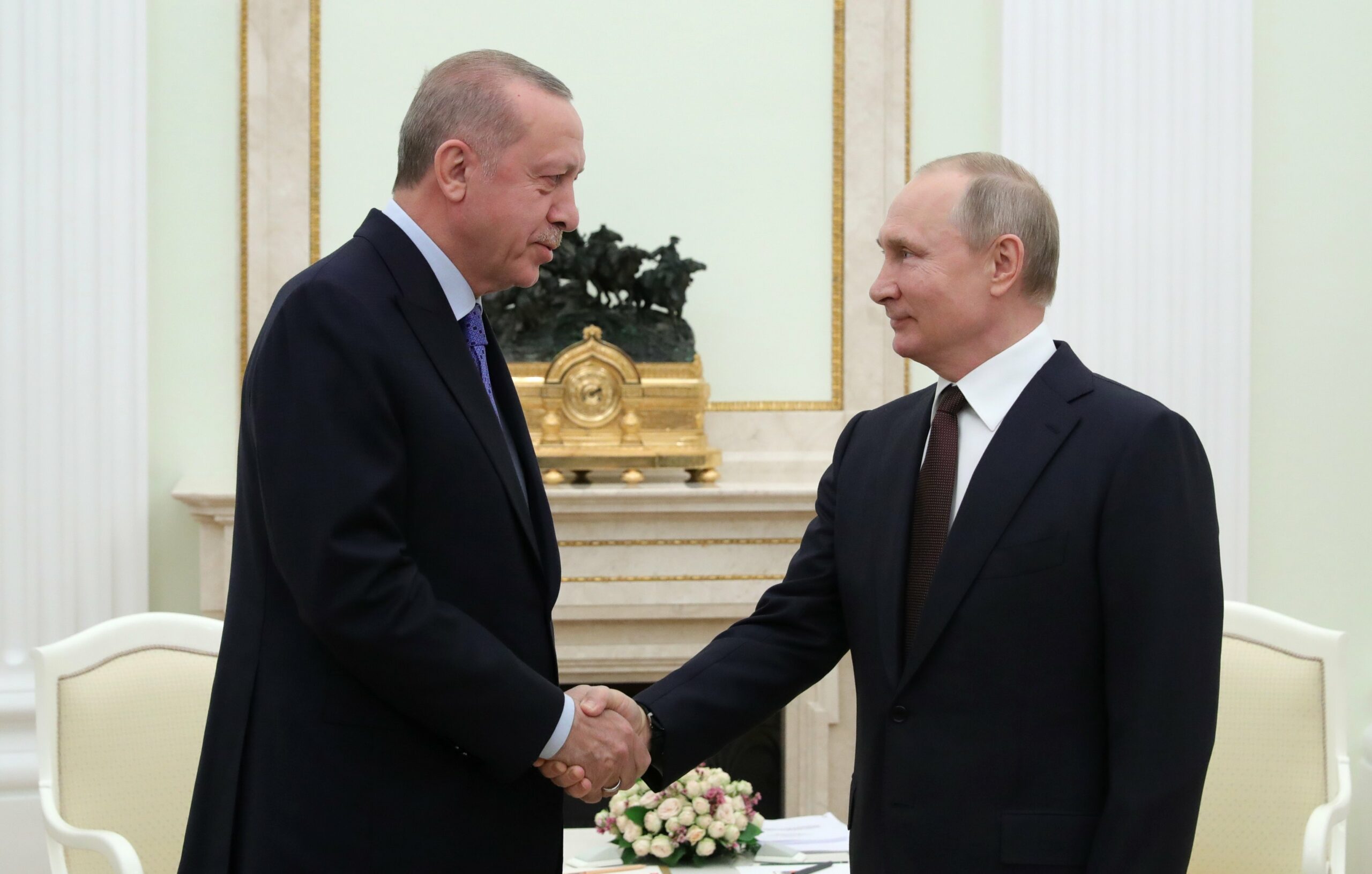Energy, this is how Russia and Türkiye are gassed

The project for a Russian gas hub in Turkey is progressing, Putin assured during a meeting with Erdogan in Sochi. Meanwhile, Moscow and Ankara are collaborating on a 20 billion nuclear power plant. All the details
Russia and Turkey would be close to an agreement for the creation of a pole (or hub) for the exchange of natural gas in Turkish territory. Russian President Vladimir Putin, just before meeting with his counterpart Recep Tayyip Erdogan in Sochi, on the Black Sea, said he hoped "that in the very near future we will complete our negotiations" for the establishment of a hub, which his saying "will make the energy situation of the region more stable and balanced".
A TURKISH HUB FOR RUSSIAN GAS
After the collapse of economic and political ties with the European Union, the most important market for the sale of its gas, Russia has started looking for alternative ways to export fossil fuels, which contribute significantly to the state budget . Last year Putin then put forward the proposal of a gas hub in Turkey, a country which Russia has come very close to after breaking with Western governments and which it would like to transform into a corridor for energy trading towards the west.
Erdogan has declared that the project will "enrich" bilateral ties, but the details on the volumes traded and even on the appearance of this hypothetical hub are not clear. According to some statements by Putin in July, it seems in fact that the hub will not be a physical site in which to store large volumes of Russian fuel, but an electronic trading platform. In December 2022, the Turkish government had specified that the Turkish hub will not only handle gas from Russia, but from various suppliers.
DOUBTS ABOUT PUTIN'S PROJECT
In order to transform Turkey into a gas hub, Russia would have to increase the capacity of gas pipelines to the country, which is currently inadequate for the purpose. Moscow, therefore, should build new pipelines in the Black Sea and towards south-eastern Europe. But the works could take more than ten years to reach the combined capacity of the two Nord Stream gas pipelines (the main European pipelines), or 110 billion cubic meters. Assuming and not granting that Russia has the necessary technical means for the works, given the sanctions that prevent it from accessing Western technologies and services: the pipelay ships already employed in the Baltic Sea for the construction of Nord Stream 2 may not be effective in Black Sea, given the much greater depth of the seabed. TurkStream, the pipe that connects Russia and Turkey via the Black Sea, operational since January 2020, has a capacity of 31.5 billion cubic meters per year.
In addition to the technical difficulties, there are economic issues. How much, for example, will the cost of transporting Russian gas to Turkey and from Turkey to north-western Europe be? Given then the European plans to detach from natural gas (not counting the intentions of energy independence from Russia), will there be in the near future a demand for fuel high enough to justify the creation of the hub?
RUSSIA-Türkiye COLLABORATION ON NUCLEAR ENERGY
While discussions on the gas hub continue, the collaboration between Moscow and Ankara on nuclear energy is also progressing: the two governments are in fact working together on the construction of the Akkuyu plant, a site with a 4800 megawatt capacity and a value of 20 billion dollars located in southern Turkey.
The first of Akkuyu's four reactors is expected to go online in 2024 (rather than 2023) and the first shipment of Russian nuclear fuel has been delivered. The plant is expected to be fully operational in 2028 and meet 10 percent of Russia's electricity needs, as well as allowing savings of 1.5 billion dollars a year for natural gas imports.
In 2022, trade between Russia and Turkey amounted to $62 billion
This is a machine translation from Italian language of a post published on Start Magazine at the URL https://www.startmag.it/energia/russia-turchia-hub-gas-energia-nucleare/ on Mon, 04 Sep 2023 14:03:41 +0000.
